 Integrative models to support a healthy lifestyle
Integrative models to support a healthy lifestyle
By Scott Frazier, MSC
Eating Recovery Program Manager at Sierra Tucson
When residents struggle with their identity, they inevitably struggle with attachment. This leads to a craving for attaching to others and may create a loss of attachment to self. One can easily be imprisoned in the early Psychosocial Crisis stages that removes autonomy and causes mistrust in many facets of his or her life. A maladaptive pattern of behaviors usually includes self-taught coping skills. Individuals develop them to address mood disturbances, trauma, grief, loss, or a combination of disorders that influences their overall functionality. One historically attaches onto patterns of behaviors that he or she can control as a means to rationalize desired feeling(s). This can show up in different forms to include addiction, eating disorders, emotional regulation problems, and other maladaptive behaviors.
Eating disorders are no exception, as one may lose his or her self-identity. Attachment then becomes a key part of the individual’s destructive cycle. A person may attach to an image of who he or she should be and engages in disordered eating to acquire the desired image. Examples of maladaptive coping skills may include a trauma resident attaching to the idea of control and engaging in restriction of diet in a means to control the feelings around the trigger. With a mood disturbance, a resident may capture the feelings of comfort by bingeing or purging to cope with anxiety or depression. The instrumental assessments and treatment of the individual is important, as many providers focus on just treating the symptoms rather than the person as a whole. Historically, eating recovery has been a medical-based model, in which stabilization of the client is the goal of the provider.
A new approach is being utilized at Sierra Tucson that combines several best practices to treat the whole person. As a resident enters treatment, he or she experiences an integrative health model that focuses on a combination of medical, psychiatric, and clinical work. Therapies such as EMDR, Somatic Experiencing® Therapy, grief and loss, addiction treatment, psychiatric stabilization, and naturopathic medicine, work in unison with eating wellness, sleep hygiene, dietician-tracked meal plans, and therapy for relapse prevention.
In truly identifying a focus of treatment that impacts the resident for a positive outcome, Sierra Tucson’s Associate Medical Director Tena Moyer, MD, and I lead the treatment team in which the modalities’ emphasis is on identifying early developmental relational trauma and its impact on eating disorders in adolescents and adults. As a provider, examining the role of both the sympathetic and vagal nervous system, as well as exploring the psychodynamic implications of attachment and development that leads to disruptions in the genesis of disordered eating, is crucial to providing integrative care. Examining the “value” of disordered eating beliefs and behaviors helps us as we guide and encourage residents to illuminate the meaning of such behavior. Talk therapy can then help develop healthier strategies for managing emotional and somatic dysregulation.
The clinical work needs to be individualized and resident-driven. Providers may need to adapt to the individual, which may take on many forms; for example, helping a resident heal through modeling expression and using metaphor and symbolism as resources. Family dynamic work may incorporate the history of messages sent to the individual that reinforces maladaptive eating behaviors. Encouraging family participation, facilitating healthier ways to communicate, improving the family system, working through codependency, and setting boundaries all work to support a healthier lifestyle. In essence, treating the resident with integrative models that incorporate medical, psychiatric, and clinical services in a unison approach with wraparound continuing care and a lifetime of alumni services is providing a world of change for individuals struggling with eating disorders.













